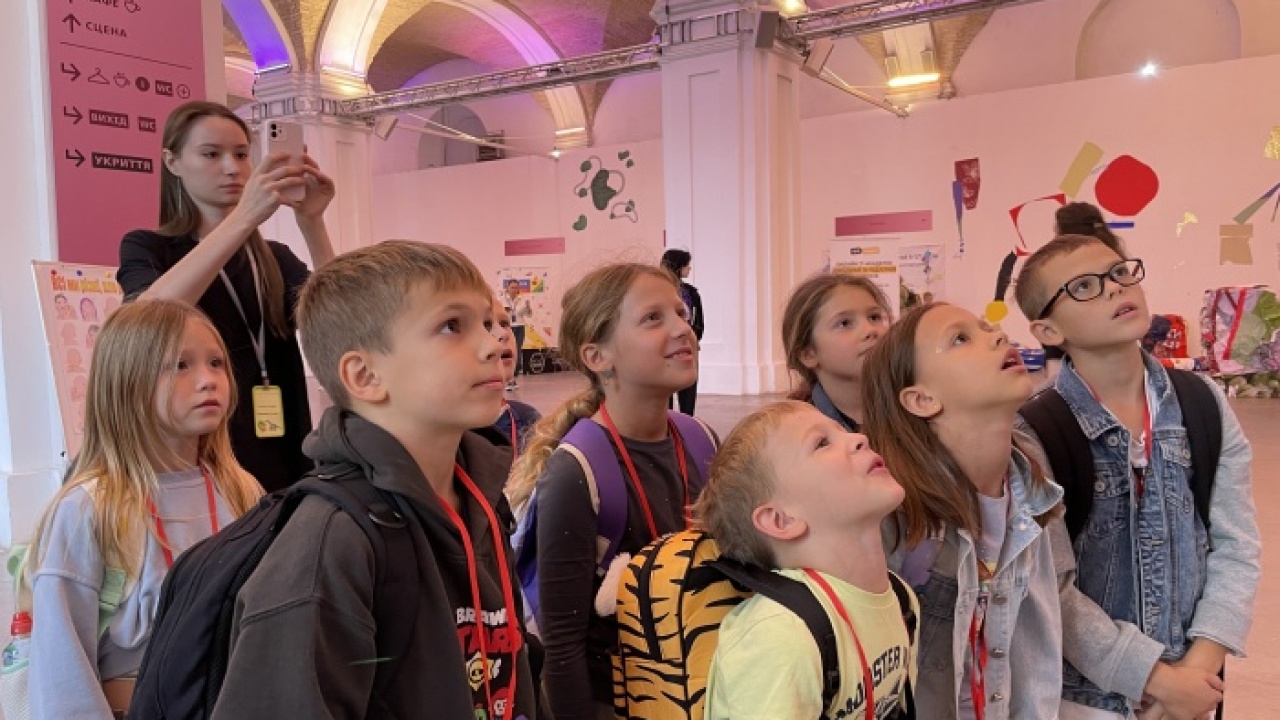This project aims to help young people learn about diverse experiences and the diversity of people through interaction, search, play, and free choice. Since 2020, the festival has been bringing together representatives of organizations from different regions of Ukraine who conduct educational activities in the field of culture and creative industries. Traditionally, STEM schools, social initiatives, creative studios, and non-government organizations also join the festival. During the three days of the festival, schoolchildren could learn about culture and science, art and technology, heritage and innovation. Different Together creates a space for research and creativity, discovery and games, experiments and mischief. According to the organizers, this is the space where you can be different while being together.
A girl tries her hand at filmmaking. Photo: Katya Singurova This approach echoes the values of the NGO Docudays, so the DOCU/CLUB Network and the Docudays UA International Film Festival were happy to participate in the festival. All participants had the opportunity to offer their own educational game programs at their stands. We used awards, posters, and elements of festival decorations from different years of the Docudays UA International Film Festival to decorate the stand of the NGO Docudays. During the open screening, the audience could watch the films from the Civil Pitch 2.0 project: Our Robo Family by Anastasiia Tykha and Under the Wing of Night by Lesya Dyak. Director Anastasiya Tykha joined the film discussions in person. 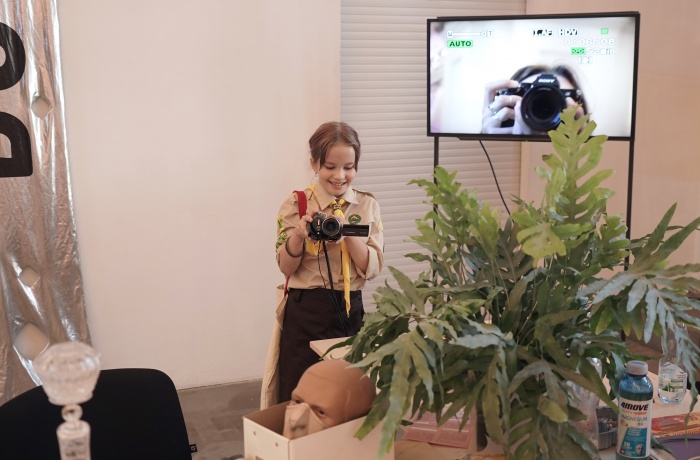
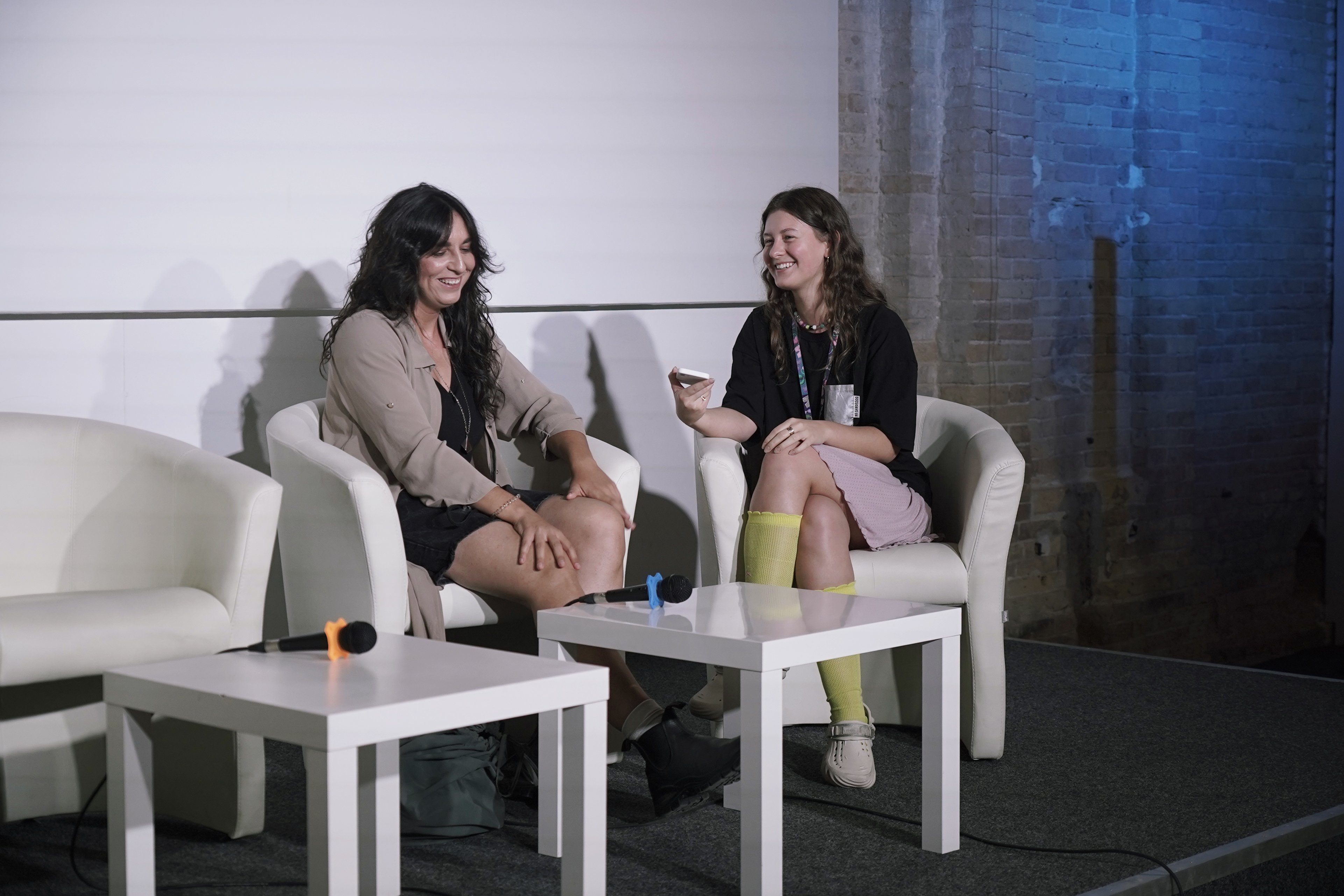
A conversation with Anastasiya Tykha after the screening of Civil Pitch 2.0 films. Photo: Nika Popova The DOCU/CLUB Network team invited younger visitors to draw themselves on a common poster “We are all different – we are all equal.” The older teenage audience had an opportunity to test their knowledge of human rights in a quiz on the Kahoot learning platform, as well as try to put together puzzles about children's rights. The adult visitors – teachers, parents, heads of parental committees, representatives of government agencies and the public sector, – had a chance to learn about the Docudays NGO, activities of the Film Club Network, the Docudays UA International Film Festival, and the War Archive. We told them about our projects, informed them about the School DOCU/WEEK, and encouraged the visitors to open film clubs at their educational institutions. Children fascinated by hypnocircles. Photo: Kseniya Oprya A special event featured by the DOCU/CLUB Network at the Different Together festival was the moderated screening of the film Gabriel Reports on the World Cup by Dutch director Els van Driel. The discussion was moderated by our colleague, the School DOCU/WEEK coordinator Nataliya Dobryanska. The discussion of the film once again convinced us that documentary films are the “magic key” that helps establish contact with children's audiences, opening them up to a frank and sincere conversation. The young viewers were moved by the fate of the film's protagonist Gabriel and his efforts to save his neighborhood from destruction. They talked about respect for human rights and the courage it takes for a teenager to defend not only his own rights, but also the rights of the people in his neighborhood. “Even one person can draw attention to urgent issues;” “This is a very powerful film that makes you ponder how big events can affect the lives of ordinary people;” “I was impressed by the courage of Gabriel, who was not afraid to stand up to injustice and the authorities,” – these were the comments shared by the audience after the screening.
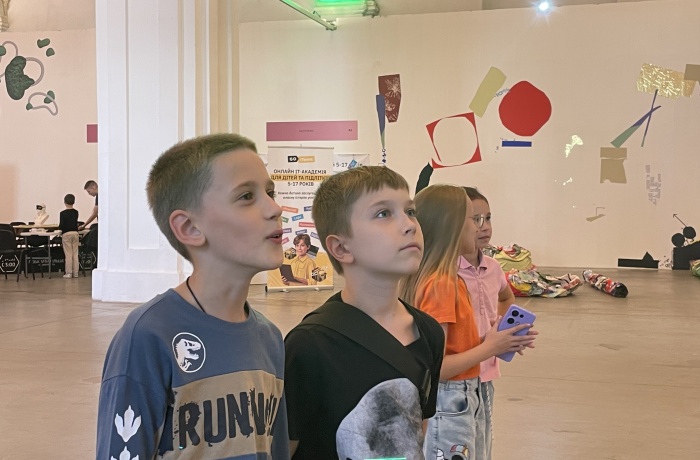
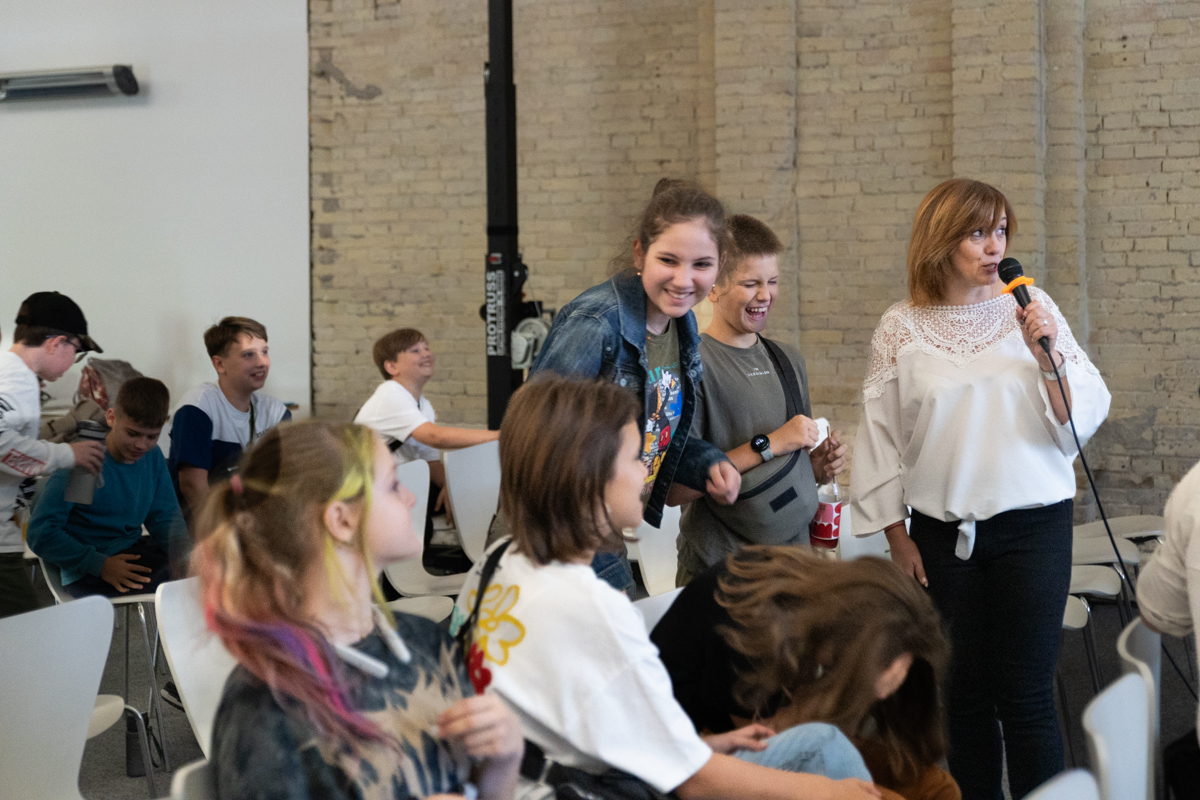
Discussion after the screening of Gabriel Reports on the World Cup. Photo by Maria Brykymova The youngest participant of the discussion, 4th-grader Andriy, was especially enthusiastic. His thoughts and answers to the moderator's questions prompted us to think about organizing screenings for primary school children. “Children see the story of a particular person on the screen. The film helps children share the emotions and experiences of others and see how they behave and feel in such crucial moments,” said Nataliya Dobryanska after the screening. ”When we talk to children about human rights, a documentary is probably the best tool to show how human rights violations occur and how to respond to them.” We hope that the meetings and active communication with the Network's team will encourage the visitors to hold the School DOCU/WEEK at their educational institutions, register film clubs, engage students in discussions of documentary films – and all this, in turn, will help the younger generation enter adulthood with a clear understanding of human rights and the skills to protect them.
Title photo: Ksenia Oprya. The publication is funded by the National Endowment for Democracy (NED), Fondation de France, and the German Marshall Fund of the United States of America. The opinions, conclusions, or recommendations are those of the authors and compilers of this publication and do not necessarily reflect the views of the governments or charitable organizations of these countries. The authors and compilers are solely responsible for the content of this publication.
